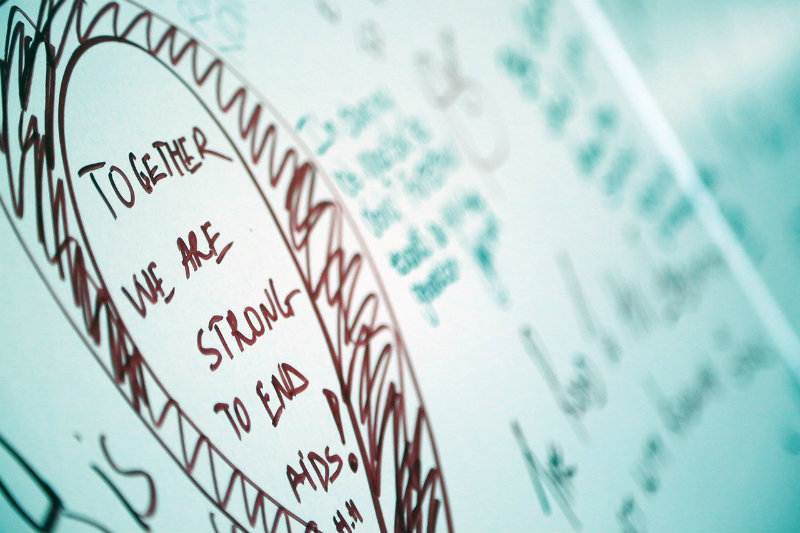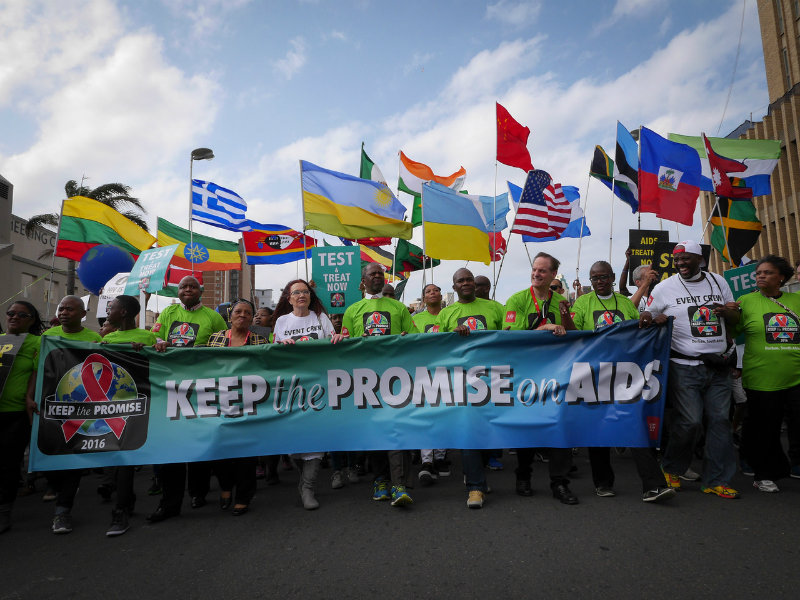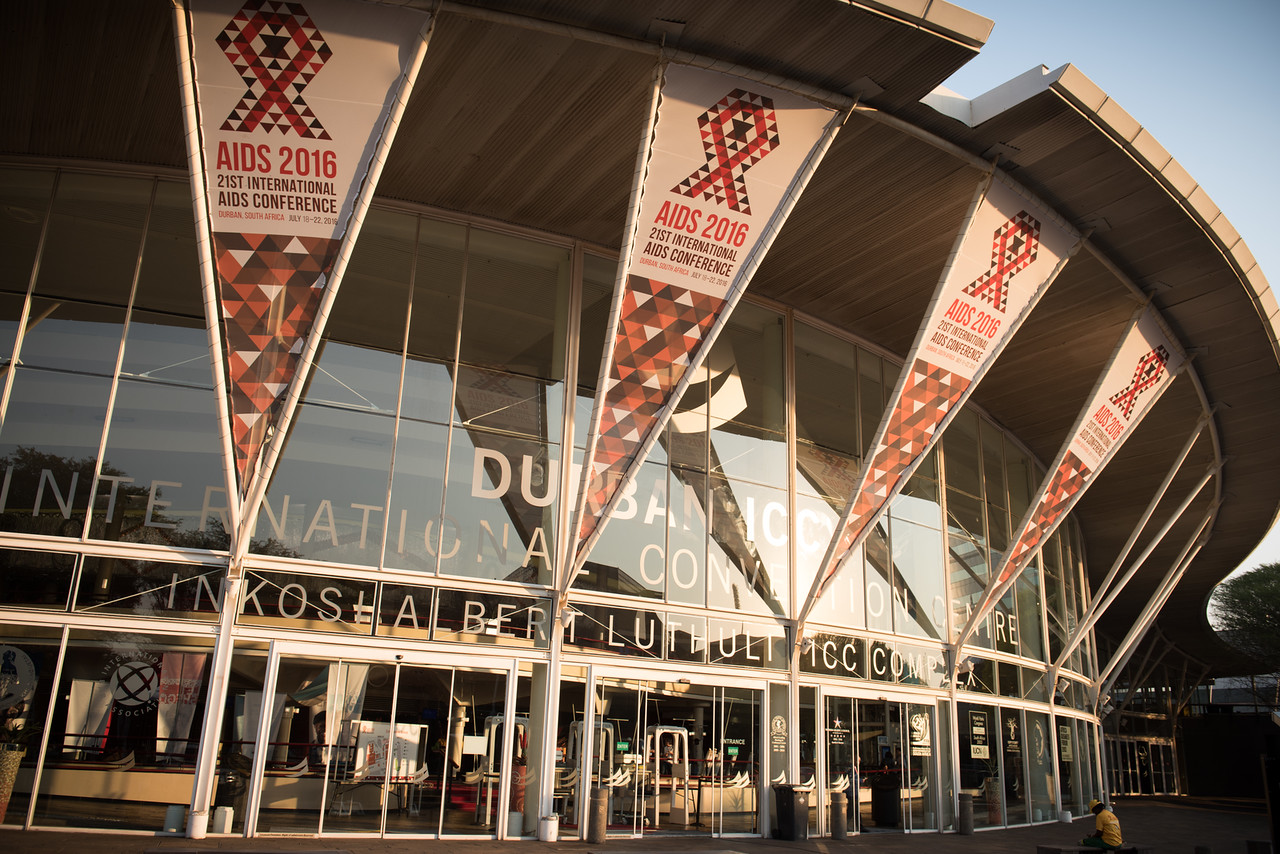Harriet Jones, CAFOD’s HIV Advisor, talks about her experience at the recent International AIDS conference in Durban, South Africa.
HIV and AIDS: An emergency once again
Harriet Jones, CAFOD’s HIV Advisor, talks about her experience at the recent International AIDS conference in Durban, South Africa.
Find out more about our HIV and AIDS work
The International AIDS conference brings people, involved in every aspect of HIV

response, together – from activists to health care workers, non-governmental organisations to pharmaceutical companies. Faith leaders to scientists, celebrities to government officials, and most importantly, women, men, and young people from around the world, living with and affected by living with and affected by HIV and AIDS
The AIDS conference was last held in Durban in 2000, in Durban, South Africa. Then, the epidemic was considered an emergency, with significant numbers of people dying each month, without access to the antiretroviral treatment keeping people alive, that we have now.
The theme of the conference was ‘breaking the silence’. Nelson Mandela addressed those in Durban, and called upon the world to, “break the silence, banish stigma and discrimination, and ensure total inclusiveness within the struggle against AIDS.”

Over the last 16 years, the world has not been silent. We have fought to get more people treatment, set ambitious goals, and then set more once we have achieved them.
International Women’s Day – Supporting HIV and Gender in Uganda
We have reached the stage where HIV should no longer be an emergency, but a health condition, which needs chronic care. Despite huge efforts, we are not there yet. We have not ended AIDS, and without significantly scaling up and adapting our response we will not get there. We risk becoming silent again. We risk another emergency.
Find out more about our HIV and AIDS work
I travelled to Durban with CAFOD colleagues from our offices in East Africa. We attended Catholic and Interfaith ‘pre-conferences’ before the main conference. Unlike AIDS conferences of the last six years, the mood was one of great urgency. The world has become complacent about HIV. Political will and funding is declining, programmes are closing. This is a terrifying prospect for those gathered at the conference and those in the communities with which we work.
The global response has reached 17 million people with treatment and care, but there is still that number again who need treatment, care and support. The remaining 60% are often those who are already marginalised, those we find harder to reach due to conflicting beliefs around behaviours, lifestyles or sexual identity: but it is these people who we cannot ignore, and they cannot be left behind.
We need to increase our efforts in prevention and reach those at greatest risk. Africa will soon see the largest-ever generation of youth, a group that is at high risk of infection. The combination of these factors will lead to a significant increase of new infections. If we don’t address this, if we don’t involve young people, by making sure they have the information, services and support they need, we will lose the significant gains we have made over the years, controlling the epidemic and supporting people to thrive.
The conference has sent me through a rollercoaster of emotions; anger at the those who ignore the realities in which we live, who can’t adapt and work with people different from themselves; sadness and respect when brave activists stand up and share their stories, such as a young Nigerian man who talked of his struggles of being HIV positive and gay; the young girl who was HIV positive, had faced gender-based violence, losing both her mother and brother to AIDS. The AIDS conference is inspiring and rekindles the sense of community and responsibility we all share.

CAFOD and our partners have been responding to the epidemic from the start, but we, like others, cannot be complacent: we need to do more, to work where we are less comfortable, and, where necessary, adapt. Alongside others, we will play a vital role in seeing the end of AIDS.
Supporter story: visiting CAFOD partner in Uganda supporting people with HIV and AIDS
I came to this conference wondering about the future, about whether we can shift our efforts to other emerging health or development issues. I left knowing that we can’t, we need to continue to fight until we see an end of HIV and AIDS.